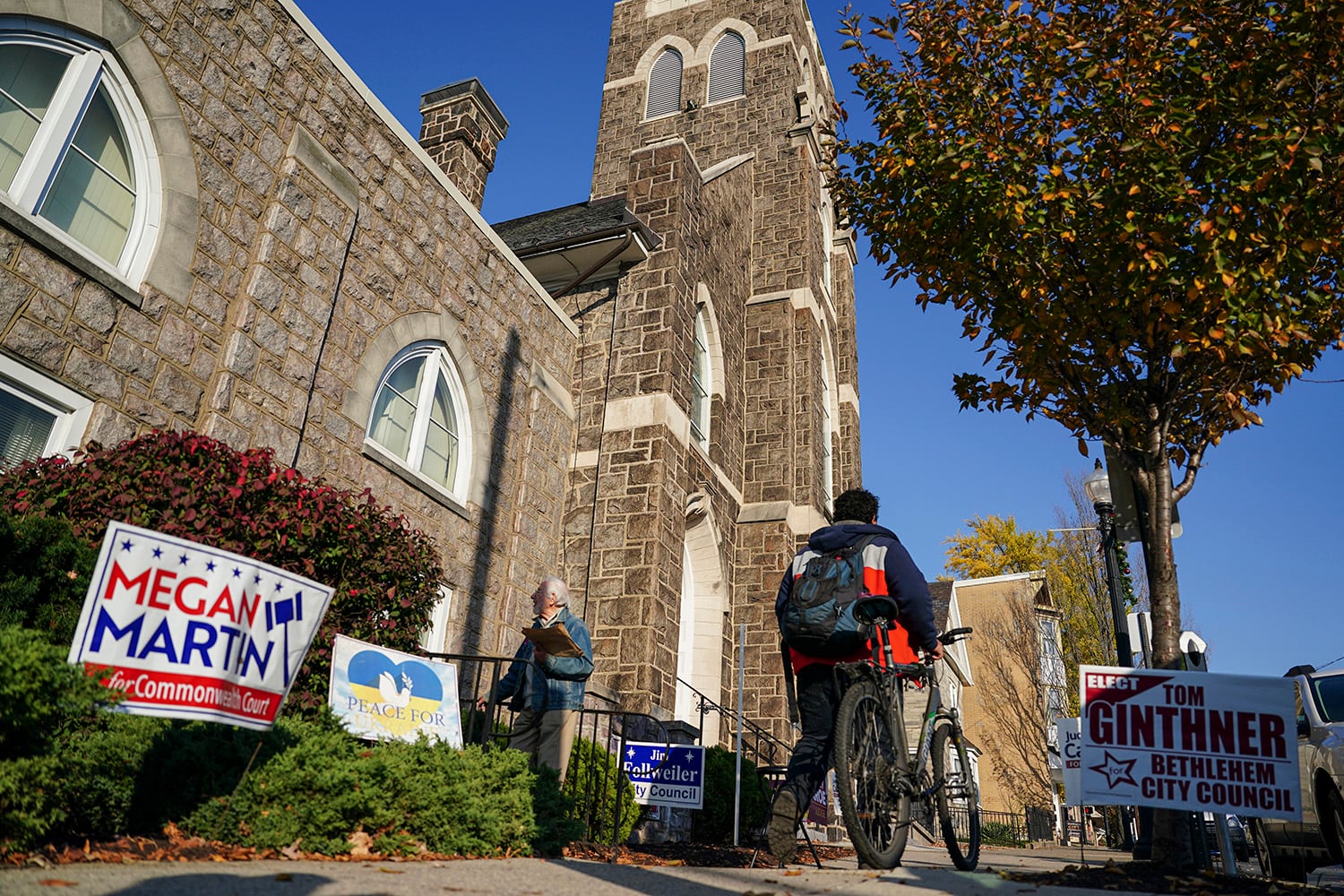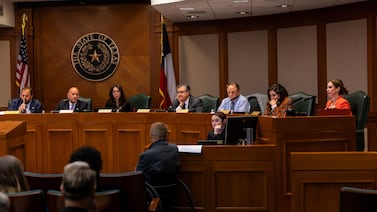Votebeat is a nonprofit news organization reporting on voting access and election administration across the U.S. Sign up for our free newsletters here.
Northampton County said a programming error with its voting machines caused votes for two Pennsylvania Superior Court candidates to be improperly printed on voters’ paper ballots, though officials stressed the correct selections were recorded on the machines.
The county’s pre-election testing should have caught the problem before the Nov. 7 election, but the testing was incomplete, a county spokeswoman said.
Reports of problems voting in the judicial retention of Judge Jack Panella and Judge Victor P. Stabile began coming in from around the county Tuesday morning.
“It appears that when a voter selects a ‘Yes’ or a ‘No’ for one of the candidates for retention to the Pennsylvania Superior Court, the selection is recorded on the paper ballot and on the machine for the other candidate,” the county’s statement read. “The issue is limited to the retention of Superior Court Judges, and is only an issue when recording the votes for when a voter selected a ‘Yes’ for one candidate and a ‘No’ for another candidate.”
Northampton County said it is instructing poll workers to tell all voters about the issue before they cast their ballot.
The county initially petitioned the local court to extend voting by one hour. Northampton County Court of Common Pleas Judge Abe Kassis ruled that the county could continue to use the machines and did not order voting hours to be extended as a result of the problem.
Charles Dertinger, the director of administration for Northampton County, who oversees the election office, said at a news conference the issue only existed in the printout created by the voting equipment. He said that the tabulation will accurately reflect voter’s selections.
“The problem is a matter of the output on the printer only,” Dertinger said. “The election will be recorded correctly as the voters intended when they pressed the screen.”
Dertinger stressed that the county confirmed the error was limited only to one judicial race and that the election results will still be accurate.
“If you’ve never had this issue before, perhaps you’d be forgiven for being a little lax on your pre-election testing,” said Pam Smith, CEO of Verified Voting, a nonpartisan elections technology organization.
Smith said that the issue should have been caught in pre-election testing — known as logic and accuracy testing — by trying out all combinations of “yes” and “no” on mock ballots to ensure they were recorded correctly. The error is likely due to a programming issue, Smith said, though she said she couldn’t be certain.
Logic and accuracy testing are tests done before Election Day on voting equipment to ensure equipment functions as expected and accurately counts votes, according to the U.S. Election Assistance Commission.
Brittney Waylen, a spokesperson for the county, said only “yes-yes” and “no-no” votes were tested ahead of Election Day, but not split votes.
Northampton’s voting equipment also malfunctioned during the 2019 election, when votes in a local judicial race were not properly recorded, among other issues. The following year, county officials and the voting machine manufacturer insisted the problems were resolved and wouldn’t recur.
Northampton County uses the ES&S Expressvote XL voting system, which is a hybrid ballot-marking device and ballot tabulator. The device allows voters to make selections on a touchscreen, which are then printed onto a ballot and displayed to the voter so they can check the accuracy before the ballot is counted.
Philadelphia also uses the ExpressVote XL, but Nick Custodio, deputy city commissioner, said the city had not experienced any similar issues Tuesday.
In 2019, the first year the machine was in use, the problems prompted election security groups to sue the Department of State for certifying the machine in the first place. That lawsuit settled earlier this year, and counties are now required to publicly report such errors.
The ACLU of Pennsylvania, which sent a joint letter with other voting rights groups to the county on Tuesday, said in a statement on X, the social media network formerly known as Twitter, that the issue underscored the need for counties to “engage in rigorous testing of those machines and that they have paper ballots as a backup on Election Day.”
Northampton County Executive Lamont McClure told local news outlets that he was “livid” with ES&S. People who question election integrity were already seizing on the problems in Northampton County, and McClure acknowledged at a news conference Tuesday afternoon that there are what he described as “bad actors” looking to undermine confidence in elections by pointing to issues like this.
Linda Bennett, a senior vice president at ES&S, said at Tuesday’s news conference that the problem originated with a “clerical labeling error” by an ES&S employee, which caused “the wrong label abbreviation to be reflected on that printed summary card.” She added that the company regrets the situation and is committed to “fair, accurate” results.
“That is something that we will have to look at internally down the road,” Waylen, the county spokesperson, said when asked if the county would reconsider its contract with ES&S. “We are just trying to deal with today.”
Carter Walker is a reporter for Votebeat in partnership with Spotlight PA. Contact Carter at cwalker@votebeat.org.






